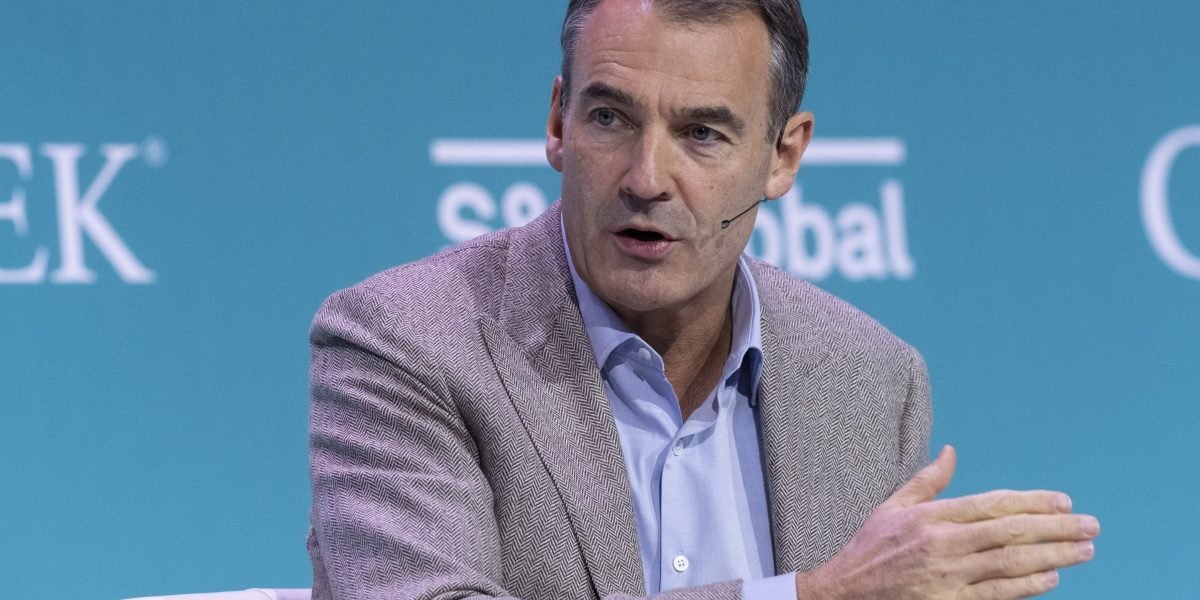“BP’s Strategic Shift in the Face of Putin’s Ukraine Invasion: Adapting to a New Reality”
BP Plc said it will taper oil and gas production more slowly this decade after the supply disruption caused by Russia’s invasion of Ukraine pushed up prices and posted record profits.
While the British company said it will double the clean energy transition with an additional $8 billion in spending by 2030, it will increase fossil fuel investments by the same amount. Early in the next decade, the company will have higher emissions than previously promised, with oil and gas production down 25% compared to 2019, compared to its old target of up to a 40% decline.
The strategic shift reflects the new reality since President Vladimir Putin’s military attack on Ukraine and his use of energy stocks as a weapon against Europe. After years of criticism for their role in causing climate change, oil and gas companies are now facing calls from governments around the world to increase production.
“We will invest more in today’s energy system,” BP CEO Bernard Looney said in an interview on Tuesday. “And that, of course, is a hydrocarbon system.”
BP is not alone in adjusting its long-term strategy. Last week Shell Plc, which also has a target of achieving net-zero emissions by 2050, said it would expand its natural gas business while keeping investment in its renewable energy unit steady this year.
More oil and gas inevitably means more CO2 emissions, despite the growing urgency to curb planet-warming gases and limit the worst effects of climate change. Earlier this year, BP economists said the world’s carbon budget is running out. The company is now aiming to reduce the carbon from the oil and gas it produces — known as Scope 3 emissions — by 20% to 30% by 2030, up from a previous target of up to 40%. It still aims to reduce its own direct emissions – known as Scope 1 and Scope 2 – by 50% by 2030.
In a strategy update released along with fourth-quarter results, in which BP announced record profits of $27.65 billion for 2022, the company said it was increasing spending on both its fossil and low-carbon businesses will increase. Up to $8 billion of additional investments are planned in each segment by the end of the decade.
For oil and gas, BP will focus its spending on ramping up production as quickly as possible. That would mean investments such as additional drilling capacity in the Gulf of Mexico, the North Sea and the Permian shale formation in the US.
“This is about production that can continue in the short to medium term to help people with supply issues that they are facing,” Looney said.
Oil Super Cycle
The perceived lack of supply in the oil market is also boosting BP’s price outlook. The company expects crude oil to average $70 a barrel in 2030, up from the $60 it forecast less than a year ago.
“His outlook has aligned with our view of the oil supercycle,” wrote Christyan Malek, global head of energy strategy at JPMorgan Chase & Co., in a note.
While BP has changed the pace of its transition to clean energy, it says it’s still directing a growing portion of the cash from its fossil-fuel business to low-carbon investments. In 2019, the company invested 3% of its capital in areas other than oil and gas. That share rose to 30% last year and will be more than half that by 2030, Looney said.
BP stuck to its goal of developing 50 gigawatts of renewable energy by 2030 and being a leader in offshore wind power, despite delivering the lowest returns among its low-carbon priorities. The company said it is targeting unleveraged returns from renewable energy of 6% to 8%. This compares to more than 15% from bioenergy as well as comfort and electric vehicle charges and double-digit returns from hydrogen.
BP shares rose as much as 4.3% on Tuesday as investors welcomed more generous dividends and share buybacks. But the company is also under fire for its fossil fuel plans.
“Apparently BP doesn’t see the windfall gains as an opportunity to invest more in renewable energy, but as encouragement to continue investing in fossil fuels,” said Mark van Baal, founder of activist shareholder group Follow This. “The company has no target to reduce its overall carbon emissions this decade.”
Learn how to navigate and build trust in your organization with The Trust Factor, a weekly newsletter exploring what leaders need to succeed. Login here.
Source: fortune.com
Don’t miss interesting posts on Famousbio










